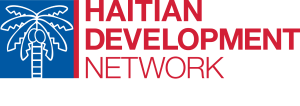Civic Engagement
Building Trust Between the Haitian People and Their Government
Citizenship is not just about rights, but also about fulfilling
your civic duties towards the government and the country.
Duties of the Citizen
ARTICLE 52:
Citizenship entails civic duties. Every right is counterbalanced by a corresponding duty.
ARTICLE 52-1:
Civic duties are the citizen’s moral, political, social and economic obligations as a hole to the State and the country. These obligations are:
a. To respect the Constitution and the national emblem;
b. To respect the laws;
c. To vote in elections without constraint;
d. To pay his taxes;
e. To serve on a jury;
f. To defend the country in the event of war;
g. To educate and improve himself;
h. To respect and protect the environment;
i. To respect scrupulously the revenues and properties of the State;
j. To respect the property of others;
k. To work to maintain peace;
l. To provide assistance to persons in danger;
m. To respect the rights and freedom of others.
ARTICLE 52-2:
Failure to abide by these provisions shall be punishable by law.
ARTICLE 52-3:
Compulsory civic service for both sexes is established. The terms thereof shall be set by law.
Remember, being a citizen goes beyond enjoying rights; it entails embracing these duties with utmost sincerity and dedication.
The state is obligated to establish for each Communal Section the structures required for social, economic, civic and cultural training of its population.
Haitian Constitution ARTICLE 64
“Where there is no vision, the people perish: but he that keepeth the law, happy is he.”
Proverbs 29:18
Our Work With the Haitian Government
Here are our priorities and principles for helping the Haitian Diaspora
Protecting Haitian Communities
Our highest priority is making sure the Haitian population are safe and have the resources to thrive.
Bridge Government and Private Sector
Government and businesses need to benefit each other and be in balance for Haiti to prosper.
Promote Economic Growth
We work with government officials and other stakeholders, to empower economic success.
Encourage Business Cooperation
Together with our partners, we're working toward a brighter future for Haiti and its people.
Expert Advice and Information
Our team engages with policymakers, elected officials, and government agencies on current solutions.


